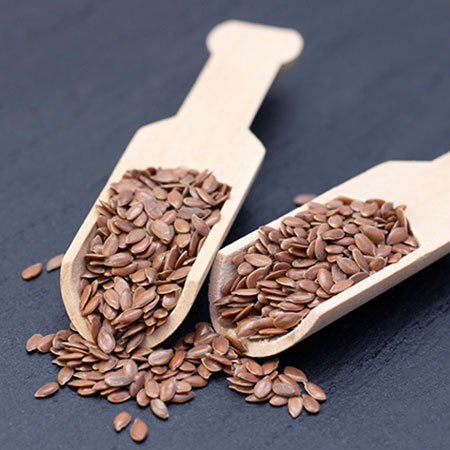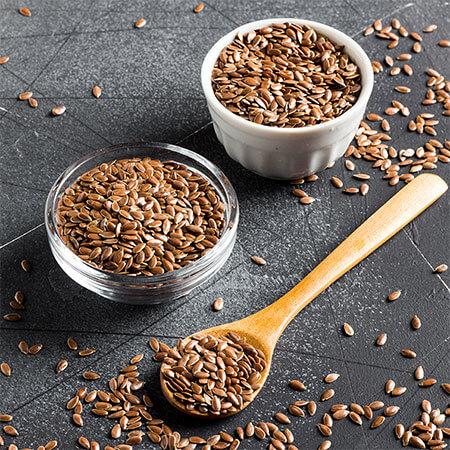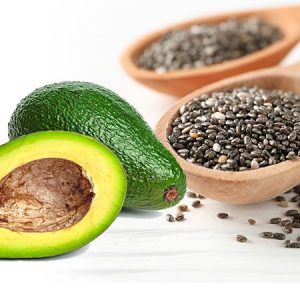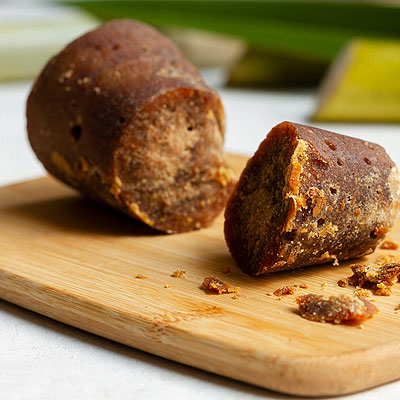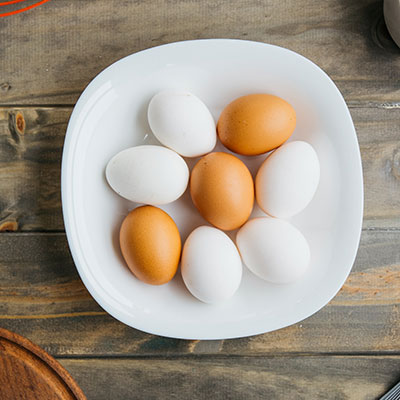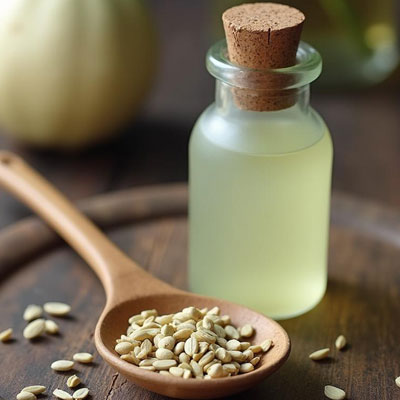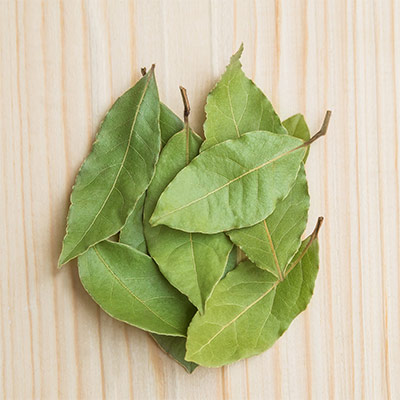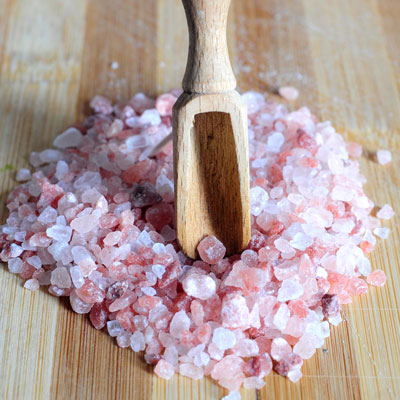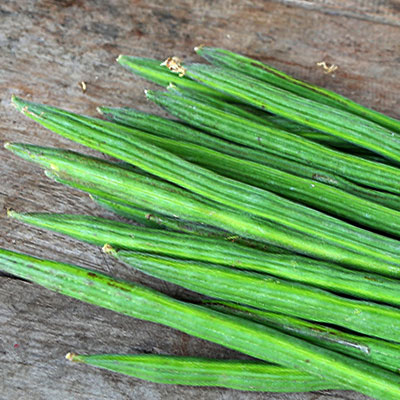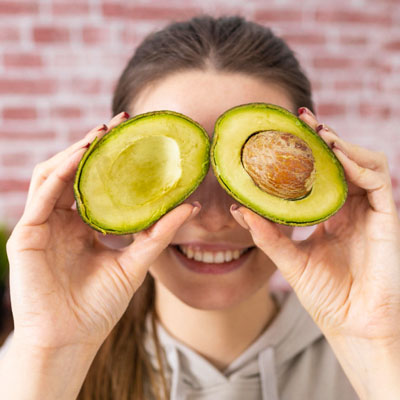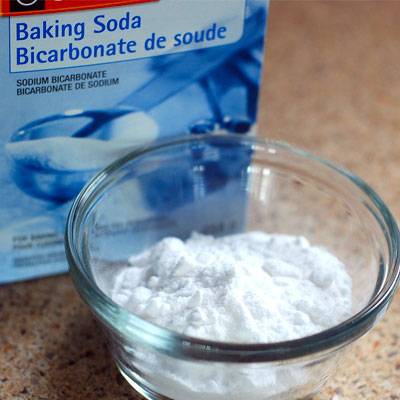The growing demand in the market for superfoods has led to the increased popularity of nutritionally enriched nuts, seeds, and berries. One of the most popular seeds that enriched the total nutritional balance of the diet as well as provides unlimited benefits for skin is flaxseed.
The scientific name of the genus that the flax plant belongs to is ‘Linum’. Flaxseeds are the seeds of the annual herb flax; which is native to western Asia and the eastern Mediterranean region. The seeds of the flax plant are flat and oval in shape. The flax plant is supposed to thrive in moist and cool environments.
Some Fun Facts about Flaxseeds
- Flaxseeds have been produced for oil and fibre by humans since 5000 BC.
- The flax plant usually gives out distinctive blue coloured flowers, but some variants also flower in yellow or white colour.
- The flaxseeds have distinctive features and are easily identifiable. The seeds are 4–6 mm long in length and have a smooth and shiny surface. They are deep brown in colour.
- The global production of flax in 2018 was estimated to be approximately 3.2 million tonnes.
Flaxseeds and flaxseed products are popularly available in the market in many forms. Consumers of these products have report remarkable benefits ranging from better skin and hair to improved constitution of the body.
Nutritional Content of Flaxseeds
Many studies have conclusively proven that Flaxseeds are a rich source of many important nutrients. Flaxseeds approximately have 40 % essential fats (like omega-3 fatty acid), 20 % protein, and 28 % dietary fibre.
Health inducing lipids like alpha-linolenic acid, lignans, and other minor compounds are also part of the flaxseed composition. The dynamic mix of high protein, high fibre endorses the place of flaxseed in the superfood dietary group.
Why Should I include Flaxseed in my diet?
In addition to being an excellent source of protein, the essential fats that are a part of flaxseed ensure that it is a ‘must-have’ part of anyone’s daily diet.
If an individual is a vegetarian then essential fats, like omega-3 fatty acid, are usually missing from the daily diet. Flaxseed is a natural vegetarian source of omega-3 fatty acid. This fatty acid is responsible for dermal or skin health. So, to have beautiful and naturally glowing skin, flaxseed is a dependable dietary supplement.
The other essential fatty acid, which must be part of your daily diet is alpha-linolenic acid. This fatty acid cannot be produced by the body itself and must be absorbed from food. This alpha-linolenic acid is easily found in flaxseeds. The alpha-linolenic acid prevents cholesterol deposit in the blood vessels as well as prevent tumour formation; thereby, ensuring the health for the heart and body.
Health Benefits of Flaxseed
Research states that 35-45% of Flaxseeds is lipids; i.e. flaxseeds contain a balanced amalgamation of fatty acids, including the essential omega-3 and omega-6 fatty acids, alpha-linolenic acid and linoleic acid. Studies have also found that flaxseeds are the richest plant-based source of alpha-linolenic acid and linolenic acid. In addition to heart health, these acids have been found to have anti-carcinogenic in certain types of cancer.
Flaxseeds are also a rich source of lignin called secoisolariciresinol diglycoside; which is a type of polyphenolic bioactive phytochemical. This lignin is known to prevent cancers as well as act as an antioxidant agent and immunity enhancing agent. Research also suggests that this lignin also has anti-bacterial, anti-viral, and anti-fungal properties.
The high fibre content of flaxseed has led to its increased therapeutic value in case of gastric, ulcer and abdominal problems. Some studies have found flaxseed to have a positive effect on oral health and gingival disorder. The high dose of nutrients in flaxseed have led to be beneficial to women undergoing menopause and osteoporosis.
The extracts of flaxseed have been reported by many studies to be beneficial to the skin. Flaxseed extracts are believed to increase collagen production in the skin; thereby, improving the skin elasticity. Flaxseed oil has been found by consumers to have nourishing properties that protect and strengthen hair follicles. There have been reports improved healing properties of the skin as well as a reduction in scarring.
Beauty Benefits of Flaxseed
1. Flaxseeds are Good for Healthy Skin
Unlimited benefits have been reported by consumption of flaxseed as well as the of flaxseed products as beauty remedies. The superfood quality of flaxseed infuses the system with many health benefits and some of these benefits are easily observed in the skin
2. Anti-ageing Properties of Flaxseeds
The consumption of flaxseeds or flaxseed powder enriches the system with omega-3 fatty acid which is very beneficial for the skin. The regular oral consumption of flaxseed or its products is known to reverse the harmful effects of UV rays and free-radicals. There are reports of anti-ageing properties associated with the consumption of flaxseeds.
3. Anti- Acne Property
The anti-inflammatory property of flaxseed results in prevention of irritation and redness in the skin. This ensures that any acne or pimple formation is also reduced in the skin. Moreover, the direct application of flaxseed products helps the skin to recover faster from superficial skin issues like dryness, blemishes, etc.
4. Skin Softening Property
The high Vitamin E content of flaxseed makes it a prime candidate to promote skin health. The regular consumption of flaxseed has been observed to induce softness in the skin as well as improve its overall health. The application of flaxseed product has also been noted to induce direct absorption of the Vitamin E in the top-most dermal layer to produce glow and brightness in the skin.
5. Reduction in Scarring Property
The many nutrients in Flaxseed render it an ideal candidate for improvement of the skin. Consumers have found that direct application of flaxseed oil on old scars as well as stretch marks has resulted in fading of the said scars and marks. The oil is supposed to be applied to clean and dry skin before bedtime. This gives the oil sufficient time to be absorbed by the skin and helps the skin to repair over a period of time.
Some Simple Flaxseed Home Remedies for Skin
1. Simple Flaxseed Mask
Once in two weeks, the application of dry ground flaxseed amalgamated with water on clean and dry skin is a quick and effective way to include Flaxseed and its benefits into your daily skin routine.
- Grind the flaxseed in a dry grinder to get a course ground powder.
- Mix the flaxseed powder with sufficient quantity of water to get a paste-like consistency.
- Apply the mask on clean dry skin and keep it on for a maximum of 15 minutes.
- Wash face after 15 minutes with cool water, this is recommended after the use of this mask to ensure skin health.
Most consumers report a decrease in acne and pimple on the facial skin after two months of regular application of this simple home remedy.
2. Skin Lightening Flaxseed Mask
The use of flaxseed with honey and lemon juice is a dynamic combination that pools the benefits of honey and lemon with the nutritional advantages of flaxseed.
- Add one tablespoon of flaxseed, one tablespoon of honey, and one teaspoon of lemon juice together in a bowl.
- Add the desired quantity of water to make a paste-like consistency.
- Apply the face mask on clean and dry skin.
- Leave the mask on for 20-30 minutes for maximum benefits and wash off with cool water.
This mask is recommended to be used before bathing for increased effectiveness. Usually, it is recommended that no soap be applied to the face after the use of this mask to reduce the effect of chemicals on the newly cleansed skin.
The honey adds to glow and shine to the skin, the lemon juice lends this mask its brightening capability, and the flaxseed acts as a nutritional powerhouse to the skin. This mask can be every week for increased visible benefits.
3. Night Care Routine with Flaxseed Oil
Anti-wrinkling, anti-scarring and improved skin elasticity have been observed when Flaxseed oil is topically applied regularly over affected regions. The routine involves cleaning and drying the region of application and light massage with commercially available cold-pressed flaxseed oil. The massage enables the flaxseed oil to permeate the skin layers and it also enables the skin to directly absorb the nutrition from the oil. The effects of this nightly routine can be observed within four weeks.
How Flaxseeds are Beneficial for Hair?
1. Promotes Healthy Hair
The rich Vitamin E content of flaxseed, lead it to be beneficial in promoting the growth of hair. Flaxseed oil hair massages are known to increase the circulation in the scalp as well as induce health into the scalp. This results in a reduction in free radicals in the scalp as well as helps in the growth of hair.
2. Prevents Brittleness in Hair
The nutrient content of flaxseeds is known to increase the elasticity of hair strands. On regular consumption of a teaspoon of flaxseed, studies have reported a decrease in the brittleness of hair as well as improvement in the quality of hair.
3. Prevents Dandruff
Research states that the rich omega-3 fatty acid content of flaxseed may be responsible for getting rid of dryness and resultant dandruff in the scalp skin. It is known that consuming a teaspoon of flaxseed with hot water on an empty stomach in the morning is the best way to extract its nutrients.
Some Simple Flaxseed Home Remedies for Hair
1. Flaxseed as a Conditioner for Hair
The use of 1:1:1 proportion of gram flour, flaxseed powder, and curd in the form of a hair mask can lead to the improved tresses. Apply the hair mask for 30 minutes and then wash it off with warm water. This ensures a reduction of bacteria in the scalp as well gives hair a beautiful shine. Some of the nutrient properties of flaxseeds are also absorbed through the scalp to result in well-conditioned hair.
2. Coconut and Flaxseed Hair Oil Massage
The use of flaxseed oil infused coconut oil provides a nutritional balance of the scalp. This hair massage not only reduces the presence of free radicals but also promotes the growth of new hair. The oil must be regularly applied once a week, followed by a hair wash after 30 minutes.
3. Lemon Juice and Flaxseed as Pre-Conditioner for Hair
The use of flaxseed oil infused with a few drops of lemon juice helps the scalp to recover from dryness. This pre-conditioner must be massaged into the scalp 30 minutes before a shampoo wash for best results. It is also suggested as a way to reduce dandruff.
Frequently Asked Questions About Flaxseeds
Q1. How much flaxseed can be safely orally consumed on a daily basis?
Ans. Most studies concur that at most 1-2 tablespoons of flaxseed is sufficient to fulfil the daily dietary requirement. The excessive consumption of flaxseed will not boost the nutrient content. The automatic body response of flushing out excessive nutrition would make the extra intake redundant in all cases.
Q2. What are the side-effects of Flaxseed consumption?
Ans. Flaxseeds are high in fibre and can act as a laxative when taken in oral form. Thus, one of the most common side-effects that has been observed is excessive bowel movements. Additionally, the high nutrient content of flaxseed can make it difficult to digest. Thus, flatulence, gas, mild abdominal discomfort, etc. are a few of the other side-effects of flaxseed consumption.
In rare cases, it has been observed that flaxseed has triggered allergic reactions in the GI tract. Therefore, medical advice is recommended to those individuals who are susceptible to allergies.
Q3. What are the common myths about Flaxseed?
Ans. One of the common myths about flaxseeds is regarding their storage. Most people assume that flaxseeds need to be refrigerated for lasting nutritional value. However, it is not true. Flaxseeds remain true to their property at room temperature.
Another misconception about flaxseed is that it mimics estrogen in the system; however, this is also not correct. There is no known scientific correlation regarding estrogen and flaxseed consumption or flaxseed product application.
There also exists a myth about flaxseed consumption and prostate cancer. However, this myth has also been debunked by the scientific community, which has found no correlation to flaxseed with respect to prostate cancer.
Conclusion
The consumption and application of flaxseed and flaxseed products have been studied by many researchers over time; these researchers have found flaxseeds to be one of the most beneficial seeds for human consumption in any form. The use of flaxseeds for improved Skin and Hair health is very popular currently.
Flaxseeds have been found to have anti-ageing, anti-scarring, anti-dandruff, anti-carcinogenic, and antioxidant effects. The protection provided by flaxseed against UV rays and free radicals has resulted in their popular use to prevent wrinkles. Therefore, the addition of flaxseed to the daily diet, in appropriate amounts, as well as the inclusion of flaxseed in beauty regimes is highly recommended.
